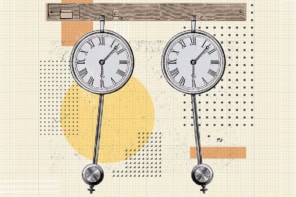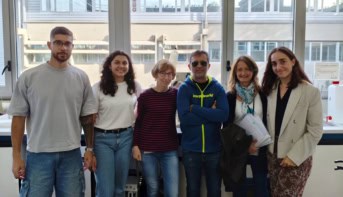All scientists like to have their papers cited by other authors - it is a sign that their work has at least been read by their colleagues. In fact, the number of citations an author receives divided by the number of papers he or she has published is being used as a measure of research quality. Statisticians also use citations to compare the research output of different nations in a particular subject, such as physics. They calculate what is known as the "relative citation impact", which is the impact of papers by authors from a particular country in a particular field, divided by the average impact for all papers in that field. But Sylvan Katz, a science-policy researcher from Sussex University in the UK, now believes that this measure is flawed. "It assumes that papers and citations are independent variables," he says.
Using citation data from the Institute for Scientific Information in Philadelphia, Katz has found that there is in fact a power-law or “fractal” relationship between the number of citations and the number of papers. In other words, larger countries publish more papers than smaller countries and receive disproportionately larger numbers of citations.
To take this effect into account, Katz has calculated an “adjusted relative citation impact”. This is the number of citations received by a country in a particular field, divided by the average number of citations that would be expected for a country of that size, based on the power-law relationship.
The results, which will be published shortly in the journal Science and Public Policy, are stunning. Although Switzerland retains its lead in physics, the US slips from second to eighth and the UK falls from fifth to sixth (see ). Other countries that appear to do worse in physics include Germany, which drops from sixth to eighth, and France, which falls from eighth to eleventh. Countries that move up the rankings include Canada, which moves from seventh to fourth, and Sweden, which jumps from ninth to fifth. Israel and the Netherlands climb to second and third place, respectively. A total of 170 nations were involved in the study.
Sir Robert May, the UK’s chief scientific adviser, used citation studies to emphasize the strength of UK science and to support his argument that it is better value for money to pay for research in a university, rather than a research institution (Physics World March 1997 p9). This analysis was partly responsible for the recent increase in the UK science budget.



